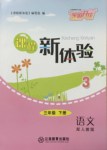题目内容
_________ of my friends wished me a happy birthday.
- A.No one
- B.Everyone
- C.None
- D.Every

 芝麻开花课程新体验系列答案
芝麻开花课程新体验系列答案It is interesting to observe the way in which children so often react against their parents’ ideas, while at the same time 36 their parent’s characteristics. This is to say, the children grow up to have different 37 from their parents, yet to have 38 personalities. There is a 39 going on in the toy world at present over 40 children should be encouraged to have war toys. I do not see any 41 in forbidding them when I think of the 42 of my friend Henry.
Henry is the son of strict parents who were against war. He was never 43 toy soldiers or guns as a 44.
Henry 45 and went into the army, becoming a first-class soldier and 46 all sorts of honors in the army. In that way he became the 47 of what his parents might have 48 of their son. And yet there is a gentleness about Henry which shows a 49 personality. His sympathies(同情) which I can see must have come from his 50. 51 doing things differently from our parents, a lot of the 52 gets passed on.
Parents have to 53 their children what they believe to be right; but it is not much your ideas that the children 54 your example. Perhaps the best way to teach one’s child gentleness is not to forbid toy guns, but to be 55 in one’s own everyday life.
| 【小题1】 |
|
| 【小题2】 |
|
| 【小题3】 |
|
| 【小题4】 |
|
| 【小题5】 |
|
| 【小题6】 |
|
| 【小题7】 |
|
| 【小题8】 |
|
| 【小题9】 |
|
| 【小题10】 |
|
| 【小题11】 |
|
| 【小题12】 |
|
| 【小题13】 |
|
| 【小题14】 |
|
| 【小题15】 |
|
| 【小题16】 |
|
| 【小题17】 |
|
| 【小题18】 |
|
| 【小题19】 |
|
| 【小题20】 |
|
 saw a second-hand bicycle, that was only one hundred yuan. I asked my father the money. But he said he could only give me half of the money. He should find the other half myself. So I went to sell newspapers after the school. My father was pleased if I showed him the money a month after. He gives me the other fifty. You can imagine how much happy I was when I rode to school on my own bicycle.
saw a second-hand bicycle, that was only one hundred yuan. I asked my father the money. But he said he could only give me half of the money. He should find the other half myself. So I went to sell newspapers after the school. My father was pleased if I showed him the money a month after. He gives me the other fifty. You can imagine how much happy I was when I rode to school on my own bicycle.